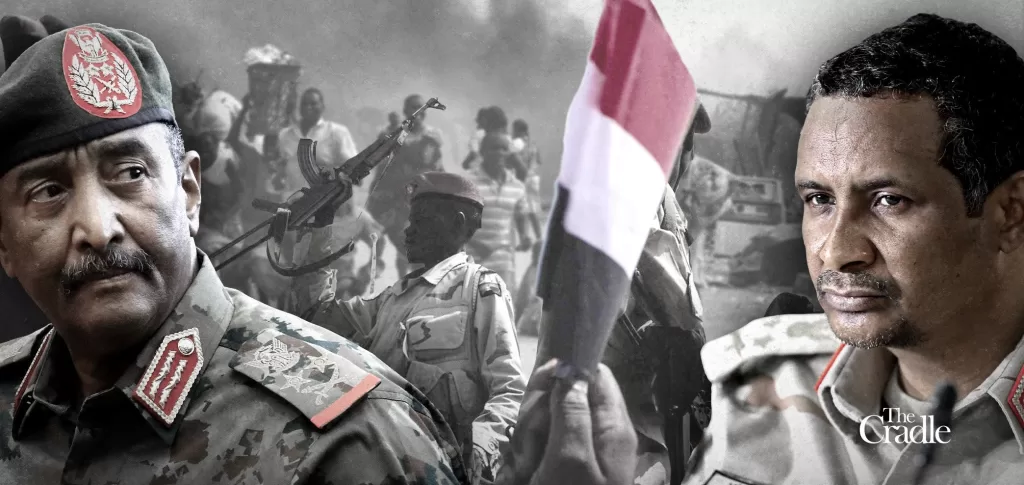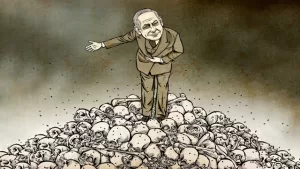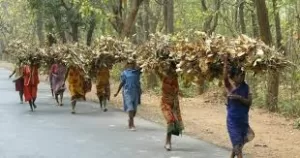Sudanese Foreign Minister Ali al-Sharif announced on 12 February that Sudan has agreed to allow Russia to establish a naval base on the Red Sea coast, providing Moscow with a crucial strategic foothold after the loss of its Syrian bases following the ousting of former Syrian president Bashar al-Assad in December.
This development coincides with the Sudanese Armed Forces’ (SAF) rapid battlefield successes, including the capture of Khartoum’s center and the strategic city Umm Rawaba, as well as growing international alignment with the SAF in its civil war with the UAE-backed Rapid Support Forces (RSF).
Until early 2024, the Russians largely backed the RSF, but switching sides aligned Moscow’s position more closely with Iran – a strong SAF backer – reduced the SAF’s cooperation with Ukraine, and supported Russian interests in establishing a naval base in Port Sudan.
The impact of the SAF’s massive territorial gains is being felt not only in the North African country, but across West Asia, which is deeply entangled in this proxy war.
The RSF counts the UAE, the Libyan National Army, Chad, and until recently Russia and Kenya among its backers. Meanwhile, the SAF is supported by Egypt, Eritrea, Saudi Arabia, Ukraine, Turkiye, Iran, and now Russia. These alliances have sometimes proved to be fluid, with shifting loyalties driven by interests ranging from Sudan’s gold reserves to lucrative arms deals.
The biggest impact of the SAF’s continuing progress, however, will be on geopolitics. With Sudan’s Red Sea coast halfway between Israel and Yemen, Iran’s support for the SAF could provide a foothold for the weakened Axis of Resistance and derail Israel–Sudan ties established by the 2020 Abraham Accords.
The extent of Tehran’s influence on Sudan will depend on how much western states and their allies support or undermine the SAF.
The cause of the current civil war
Sudan has experienced civil war almost every year since declaring independence in 1956. In 1989, Omar al-Bashir ousted prime minister Sadiq al-Mahdi, aligning Khartoum with Iran, which provided weapons in return for access to Port Sudan on the Red Sea. Iran’s support was controversial due to Sudan’s genocide in Darfur.
Relations, however, deteriorated as Sudan sided with Saudi Arabia during the growing Saudi–Iranian rift. Beginning in 2014, Sudan closed all Iranian cultural centers and expelled Iranian diplomats. The following year, Sudan sent RSF troops to support the Saudi-led coalition against Yemen’s Anasrallah-aligned forces.
In 2016, Sudan, along with other Arab countries, cut off relations with Iran after Saudi diplomatic missions were attacked by Iranian protesters in response to the execution of outspoken Shia cleric Sheikh Nimr al-Nimr. That same year, Sudan also began normalizing relations with Israel.
In 2019, protests broke out in Sudan against the rising cost of living. In April of that year, the country’s army, which included elements of what became the SAF and RSF, overthrew the government. A power struggle between SAF and RSF turned into war in April 2023 when RSF captured Khartoum’s airport, the presidential palace, and several key military bases. Despite these drastic changes, Sudan continued to normalize relations with the occupation state.
From civil war to proxy war
As the war dragged on, foreign powers intervened. The UAE supported the RSF due to their past collaboration against Yemen’s Ansarallah resistance movement, supplying arms in exchange for gold from RSF-controlled regions. In return, vast amounts of gold are exported from the RSF-controlled areas in western Sudan.
The UAE kept this relationship secret, hoping to open a new port along the SAF-controlled Red Sea. This was canceled when their support was uncovered. It is widely believed that without UAE support, the RSF would completely collapse.
Also supporting the RSF is Sudan’s western neighbor Chad, which provides weapons. The Libyan National Army provides support in return for the smuggling of goods such as gold, hashish, and stolen cars.
Russia supported the RSF to protect its pre-war gold mining. Last year, however, Moscow switched to supporting the SAF in the hopes of accessing Port Sudan. Likewise, Kenya previously recognized the RSF, but has switched to supporting the SAF.
The largest SAF supporter is Egypt, which not only supplies weapons, but has involved itself directly through airstrikes and troops. Cairo hopes the SAF will become a reliable ally against Ethiopia, which it accuses of stealing water from the Nile River. Egypt’s main interest, however, is for the SAF to bring stability and halt the flow of refugees. Whenever the SAF began to lose ground, Egypt stepped back.
Turkiye also supplies weapons to the SAF through Egypt. Ukraine has sent troops, initially to fight against Russia and now to train the air force. Eritrea, which borders Sudan, has also supported SAF-allied militias.
Most surprising, however, is the role of Sudan’s former foe, Iran. After cutting ties and normalizing relations with Israel, the SAF made an about-face and sought Iran’s support.
One reason for the rapprochement was sheer desperation: throughout 2023, the SAF kept losing territory, coming close to losing both the capital and the second-largest city, Omdurman. Its main ally, Egypt, retreated as it was disappointed with the SAF’s progress and had to focus on its own economic crisis.
Improved relations between Iran and Saudi Arabia provided a precedent for Sudan to follow. The SAF’s discovery that the UAE was backing the RSF also aligned with Iran’s interest, which supports the Sanaa government against UAE proxies in Yemen.
With the outbreak of Israel’s genocide in Gaza, Iran was incentivized to work with Sudan, which is located halfway between Israel and Yemen. In October 2023, the SAF normalized relations with Iran. Two months later, Iran began exporting weapons, specifically drones. In February 2024, these same drones helped lift the siege of Omdurman.
SAF gains and its West Asian implications
In 2024, SAF captured key cities, dominating populated areas as RSF retreated westward. Unless something drastically changes, the SAF appears destined to win.
How long the war will continue depends largely on the UAE, whose support is critical for the RSF. One of the reasons Abu Dhabi backed the RSF was so they could be an ally against Sanaa. But now, even if the RSF slows the SAF’s advance, it is unlikely to be strong enough to fight in Yemen.
This leaves the UAE with only one reason for supporting the RSF: gold. In the year before the war, the UAE imported $2.3 billion in gold, a figure that has only increased. However, supplying the RSF is becoming more difficult and costly as the SAF is increasingly able to stop weapons shipments.
Moreover, in January 2025, the US sanctioned UAE companies that support the RSF. The International Criminal Court’s arrest warrants against RSF members and the RSF’s recent attack against a Saudi hospital in Darfur have made the group more of a pariah. Whether these costs are sufficient to change the UAE’s support remains to be seen.
As for Iran’s support for the SAF – it will reshape the region. First, Sudan is distancing itself from Tel Aviv. In February 2024, the SAF’s foreign minister, Ali al-Sadiq, traveled to Tehran to meet the late Iranian president Ebrahim Raisi.
During the visit, Raisi condemned countries like the UAE for normalizing relations with Israel. Sadiq raised no objections, despite Sudan’s normalization only three years prior, and condemned the occupation state’s aggression in Gaza. While Sudan has previously called for an end to hostilities and respect for Palestinian rights, this was the first time that Israel was specifically called out.
Sudan is also critical for Iran, with its location on the Red Sea halfway between Israel and Yemen. Before relations soured, Port Sudan was a hub for Iran to smuggle weapons to Palestinian resistance movements. With relations between Tehran and Khartoum restored, support could flow not only to Hamas, but also to Yemen.
Iran’s presence would also act as a deterrent against Israel and the Saudi-led coalition in Yemen. Sudan borders seven countries, which would allow Iran to project its power across a wider region. Since 2018, neighboring Ethiopia has grown closer with Iran, especially since Tehran provided drones in the Tigray conflict. This could position the Islamic Republic as a potential negotiator between Ethiopia and Sudan over the Nile River, rivaling similar efforts by Turkiye.
To what extent the SAF aligns with Iran depends on other countries’ involvement. The SAF has received some support from western allied countries such as Egypt, Saudi Arabia, and Turkiye. While Egypt briefly stepped back, in recent months, it has re-engaged in Sudan, with an announcement last month that it will work with Eritrea and Somalia to train the SAF. Iran’s request for a naval base in Port Sudan was allegedly denied due to concerns of blowback from western allied countries. A new Russian naval base on Sudan’s Red Sea coast, however, could help bridge that gap for the Iranians, who signed a historic strategic partnership with Moscow in January.
The US decision last month to sanction SAF army chief Abdel Fattah al-Burhan and the UAE’s continuing support for the RSF could further the SAF’s alignment with western foes such as Iran and Russia.
The SAF’s likely victory will ripple through West Asia, altering alliances and power dynamics. Even if western states try to counter Iran’s ambitions, Tehran has already secured its influence in Sudan. Sudan’s reversal on Israel stands out sharply among Arab states that either embraced normalization or are considering it. After the war, Sudan will likely repay Iran for its critical support.
The UAE’s support for the RSF, though profitable, is becoming unsustainable. Egypt, Saudi Arabia, and Turkiye continue to back the SAF, but prolonged UAE involvement risks pushing Sudan further from the west. If the UAE withdraws its support, an SAF victory seems inevitable, ending the war and leaving a lasting impact on the region.
(Aidan is an immigration lawyer & writer and has a master’s degree in Global Affairs. Courtesy: The Cradle, an online news magazine covering the geopolitics of West Asia from within the region.)




